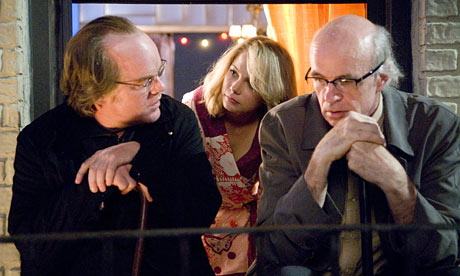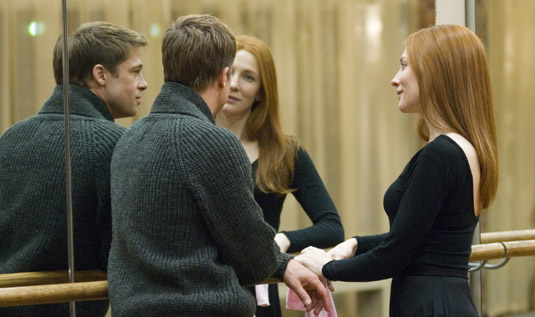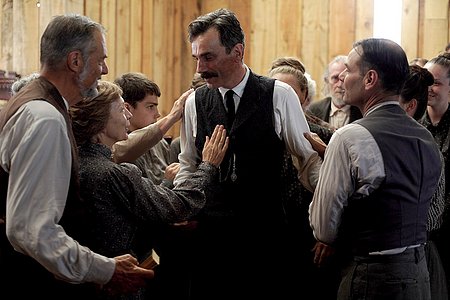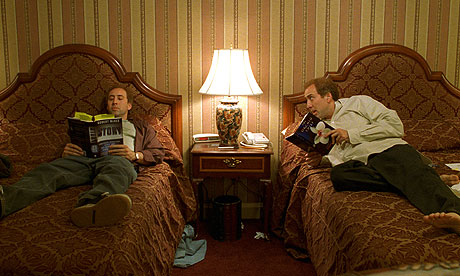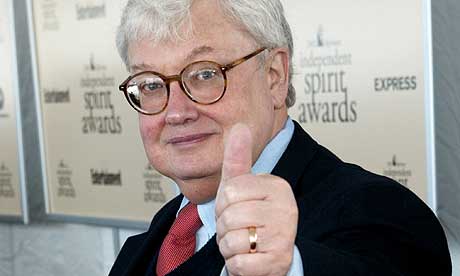
It has come to my attention, that with my recent preaching of ‘write personally’ I have forsaken some of my old writings, including the first couple of reviews that were put on this blog. Looking back at them I can see the thinking: I was applying the analytical tools I had acquired through my own thoughts, at through the avid reading of my favourite critics (Mostly of games and Films) I structured it to start with a grabbing and vaguely personal sentiment, and then launch into the rest of the film from there. But it wasn’t enough. For in trying to be like my favourite critics, I ended up mimicking their voices, which is defiant of what makes them so good. Those reviews in question (Example: The King’s Speech review) use a good enough level of language, and they make perfectly fine points. But they aren’t really developing the ‘voice’ that made my favourite critics so great; and still has a plodding stiffly structure rhythm, that is a little reflexive of the un-artful, abominably bored, impersonal checklist form of reviewing that I’ve always loathed (See: IGN, Gametrailers.com, and many, many more)
Let’s look at Yahtzee and Mr. Ebert first. Both have received high amounts of acclaim, and have made for themselves a public name based on their criticism, and have had works published. If you’re really into films, you’ve probably heard of Ebert, and if you’re really into games, then you’ve probably heard of Yahtzee. So revered is Ebert as a critic, that he’s sought out as a pundit on all things; politics, religion etc. And as I mentioned, Yahtzee’s voice has been sought out in the form of a novel. Why do people long for the words of these writers in so many formats? Would they feel similarly enticed if Yahtzee and Mr.Ebert plodded out by-the-numbers academic essay that moved blandly from symbolism-to-character-development-to-history-to-writer-influences-to-motifs-and-summary. Of course they wouldn’t. They would’ve either dismissed this as ‘Something I could write’ or have fallen asleep before they could scroll to the bottom of the page. If you read Ebert, you’ll see his reviews are usually quite short, cutting to what he personally found striking about a film, making some broader points here and there, but usually not some kind of earth shatteringly thorough analysis. Yahtzee similarly, presenting each week an approximately five-minute video, in which he rambles in his famously blase persona, to which each game is ‘Guilty until proven innocent’ Ebert’s writing is also sprinkled with life-encompassing sentiments, humour and witty musings. I think what makes them great is not that they vomit 50,000 words on examining every inch of their art, but rather succinctly choose words that cut to the heart of the work, capture the essence of what it is, so much so that if they’re opinion is negative, you still might be tempted to check the film/game in question out, because they’re descriptions are so evocative, and it sounds like something you might like. There’s an indelible tone of conversation that permeates they’re writing. Reading they’re opinions is not me ‘Wanting to be told what to think’ as it has often been ignorantly dismissed as, but rather me engaging my mind into a conversational tone with the critic. I love the solitary charm of my fiction, but I also love to discuss them. Why? Because they inform life. They change you in small (and sometimes big) ways, and there’s a need to share that with others. So the reason Ebert’s opinions are probably so sought out for all matters, is because he used an intense understanding of film as a subtle ladder to talk about life. Not in a broad philosopher- like way, but in a way that acknowledges the way even the most far-fetched stories interact and relate to our lives. This might sound odd in the case of Video games and Yahtzee, but I have a subtle example.
In his review of ‘Crackdown 2’ (a game in which the player is let loose to muck about in a huge cartoony city) Yahtzee complained that the game wanted to much for you to mess around in the chaotic sandbox, as opposed to the previous game, which tried to push you into a main structured quest. His ultimate sentiment was that messing around when the game wants you to, psychologically defeats the point of it. We messed around because of the maniacal joy of not doing what we’re told. This isn’t just games; this is everything, like the gleeful mentality of child’s play. I’m not old enough to play with a BB gun? Well now I want it more. Or even for teens; there’s a roguish joy to ditching school work to hang out with a girl all day. The girl/in-game messing around is great too, but part of it is initially driven to break out of the ‘system’. I doubt that Yahtzee was thinking all that when he wrote the review, but then in natural, stimulating conversation, we are often unaware of the sweeping magnitude of some statements.
As for the matter of ‘cutting to the core’ or capturing the essence of a work of art, I think a good example of it would be Peter Bradshaw’s review of ‘The Illusionist’ a quietly mesmerizing French film about a travelling stage magician, who at one points becomes the accidental father-figure of a young girl, who is so mystified by his gentle, oddball charm, that she follows him around various cities, as he clings to his dying craft. Like many films about the life of an introverted maverick, it challenged my analytical standards. I loved it for doing that, but I still had to turn to some critics for an interpretation to satisfy my scrutinizing mind. Bradshaw sums up the quietly mesmerizing film in a quietly beautiful way:
‘Admittedly, one has to adjust to the gentle, undemanding pace of this movie, which does not force its insights and meanings but allows them to meander into view, a pace which suddenly jolts into a higher gear when Chomet and Tati show us how The Illusionist loses his faith in his vocation. There is something shocking in the way he deliberately, angrily sabotages a trick with short and long pencils, thus upsetting and bewildering a little boy. But the real magic, the magic he has created, is happening behind his back, and under our noses. The Illusionist is an intricate jewel’
The ‘real magic’ Bradshaw is referring to, is the experience and maturity the benign magician has granted the young girl who followed him, who during the moments he loses hope In his trade, has found mutual love with a young man. That was the magic, but Bradshaw implies it like a poet, and that understatement, is what makes his point powerful and heartfelt.
So, in synergy with the conversational tone, there is an artful writer, who can move us in way that can occasionally approach the magic of the very art it is they write about. They are artful, because they ‘cut to the essence of the piece’ which I think means they are good writers because they are able to relate complex ideas in simple terms, or, if we are to abide by these rules, make the complex seem simple.
‘This is Skyrim at its best. When you accept it on its own flawed and often brittle terms. When you look past the FedEx delivery quests, almost all of which come down to going someplace to get a doo-dad. When you let the lore and dialogue and scripting carry you along. When you embrace what it's trying to do instead of scrutinizing what it actually does. When you just let it happen. This is when Skyrim will reward you most richly. Not when you're trying to win, or beat it, or get to the end, or level up, or earn the achievements. Not when you're playing it like a stat-based RPG, or a single-player MMO, or a challenge. Skyrim is putatively a game. More accurately, it's a narrative loom.’
A ‘narrative loom’! Now that’s a great writer. And having played a little of Skyrim, I now have no desire to write a review of it. I couldn't describe it any better, especially when you read the rest of his perfectly succinct review.
I think, what I have learned from this, is that good criticism is both artful and natural, and isn’t about comparing dick-sizes via how much you can nit-pick. If what made these critics great, is relating how the game/film captures ones imagination, and by extension informs and inspires us, then It makes sense that in future writings, I ought to write a raw emotional/intellectual response to the work of art. That’s what the late Pauline Kael was famous for, and it’s why she was great. But I shouldn’t try to be her, a sophisticated intellectual with a lifetime of experience to draw from. Because I’m not. I’m a sixteen year-old, and have to acknowledge that. So if I like some vapid crap, because it has lots of sex and blood in it, I need to be upfront and honest about it. I think that would develop me more as a writer. A little more ‘youthful’ in my ‘musing’. In that way, I can one day appear to be a fully-formed person purely through my words, just as the best critics do.
- Taha

